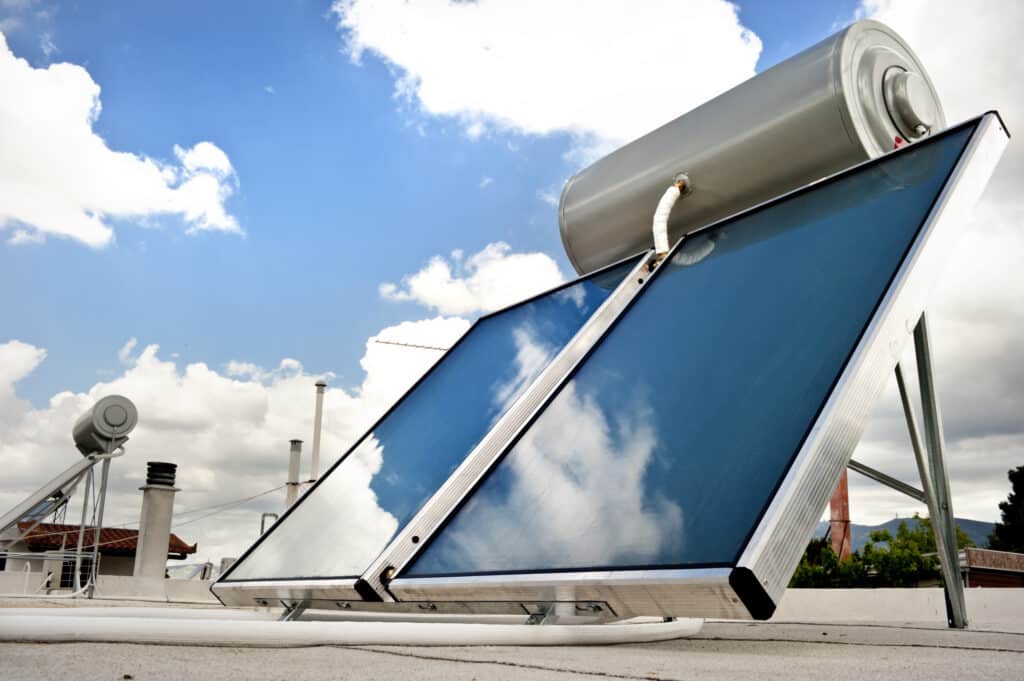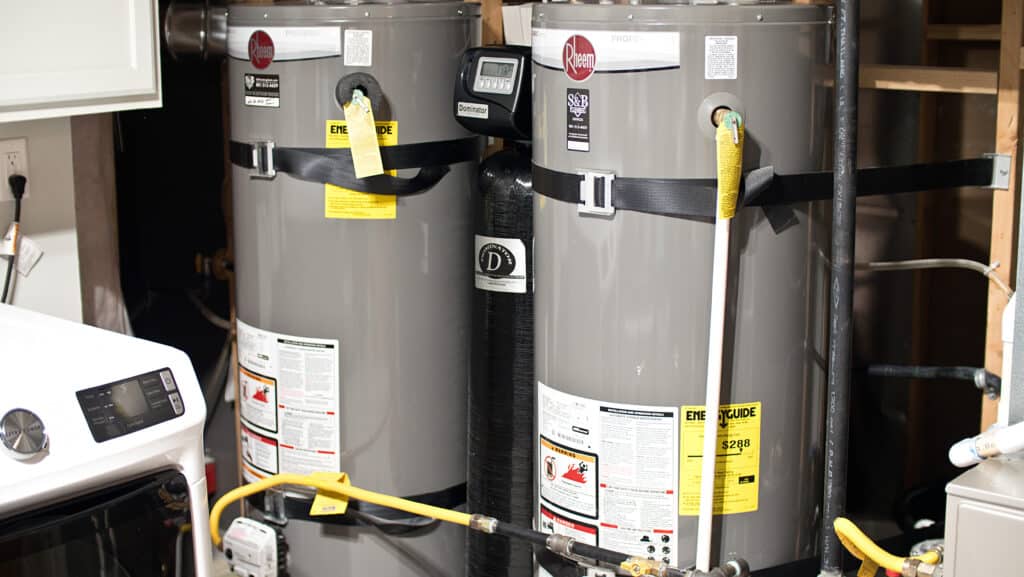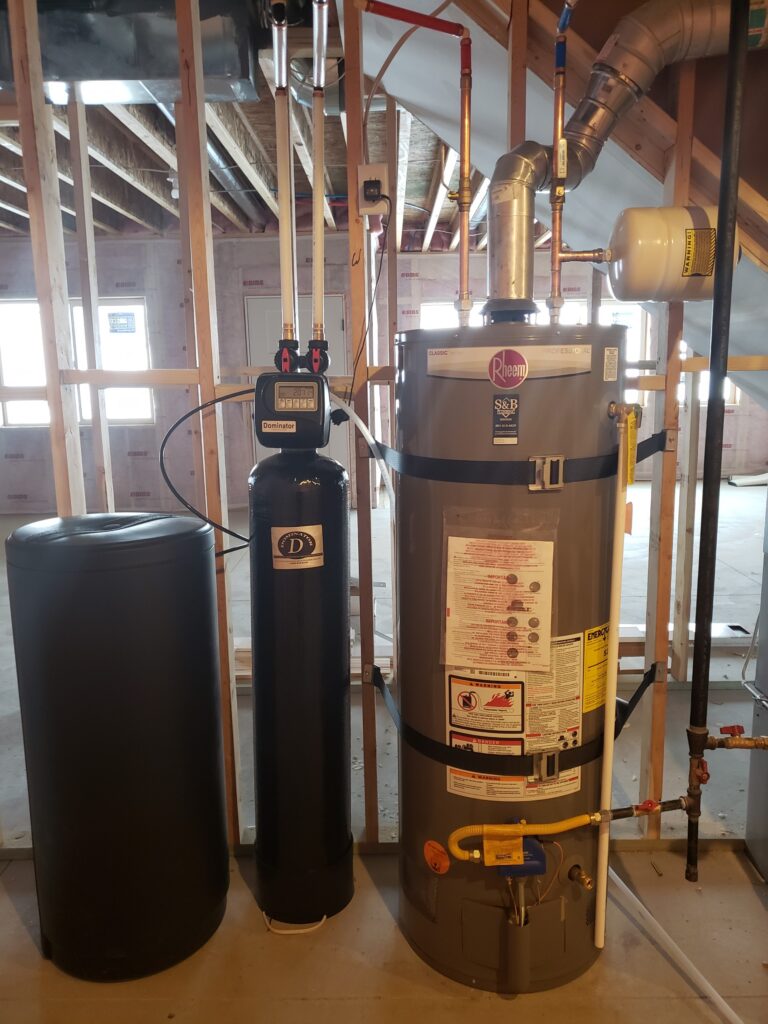
Heating water for your home can be done in a multitude of ways. One option is solar water heaters that draw all their power from the sun. Solar heaters collect the sunlight to use when you need hot water. Solar options use less fossil fuels to keep your home running. A residential water heater helps homeowners accomplish tasks inside the home. Choosing the most efficient and budget-friendly option can be difficult with all the information on the internet. Here is a simple breakdown of the pros and cons of solar water heaters that can help you make an informed decision.
Types Of Solar Heaters And How They Heat Water For Your Home
Solar water heaters collect the UV rays from the sun and use that thermal energy to heat water. Active and passive solar heaters are available for homes or businesses.
Active
Active solar water heaters use either direct circulating systems or indirect circulating systems. Direct systems pump the water solar collectors to create the hot water. These options are not good for climates that experience freezing temperatures.
Indirect circulation is a non-freezing liquid through collectors and a heat exchanger to help keep the water warm. This water is then put in a potable water tank that can keep it from freezing.
Passive
These heaters store the water for cold days when the sun is not as prominent. They are more dependable than active systems but can run out of heat after an extended cold spell. There are also two types of systems under the passive water heater umbrella.
Integral collector-storage uses the sun to heat the water through a transparent cover. The water is then transported to the plumbing system. These will not work in areas that are prone to freezing
Thermosyphon systems have a collector on your roof that only heat the water when your hot water faucet is switched on. These systems can hold up to 40 gallons of water at a time.
Pros Of Solar Heaters
Limited Environmental Impact
The biggest benefit of implementing a solar water heater is that it limits your carbon footprint. Using renewable energy, like the sun can reduce greenhouse gases and protect the environment. Solar water heaters can be implemented in many homes that want to lower their environmental impact and save money.

Low Operating Costs
All water heater types require maintenance, but solar heaters have the most minimal requirements of all heaters. Consistent inspections and service appointments are all you need to keep the water heater running. This will save you money over the years.
Save On Energy Bills
The less energy you need to use in your home the less you will have to pay in utility bills. Once your heater is installed, you have free access to the sunlight, which means that you will see a reduction in your energy bills within the month.
Longevity
The right solar water heater will last for over 20 years. Some of the components may even last longer when they are properly taken care of. Making the investment in a solar water heater is always worthwhile.
Government Incentives
Because solar water heaters are good for the environment, many government entities offer incentives for installing one in your home. Tax credits, rebates, or other incentives are offered to those who implement solar options in their homes.
Cons Of Solar Water Heaters
Weather Dependent
When you are utilizing the sun for energy, you are at the will of the clouds. When the weather is cloudy or stormy, your water heater may not be able to heat water as quickly as normal.
Hard To Install
Installing a solar water heater is complex. It should be done by a professional to ensure that it will last for its lifetime. It involves plumbing mechanisms and could require structural alterations to your building.
Space Requirements
Adequate roof space is needed for solar water heaters. This can be a con when it comes to homes that are smaller, or who may already have solar panels on their roofs. For densely populated areas, it may not be possible to install multiple solar units.

Aesthetics
Having solar panels on your roof that help to create hot water can change the aesthetics of your home. Some homeowners will not like the look of multiple solar panels across their entire home.
Concerns Of Freezing
Homes that are in colder climates may not be able to implement solar water heaters because of freezing temperatures. Some solar heaters will be able to implement antifreeze solutions to keep the system flowing, but not all heaters have this option. If you live in a climate with harsh winters, solar heaters are not for you.
